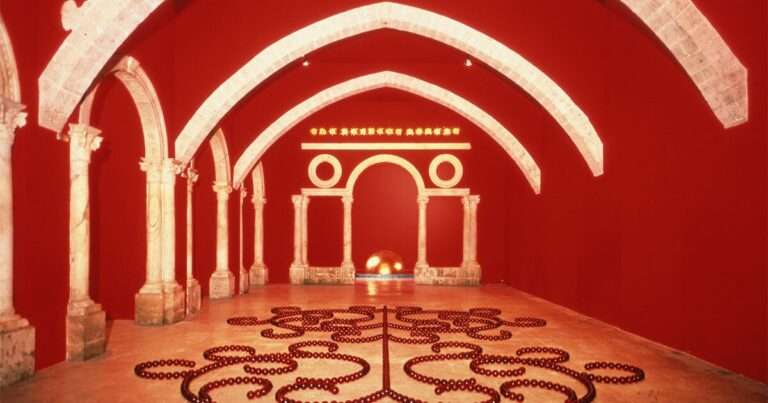ROOVICE revives tuna restaurant as community coffee shop along japan’s coast
roovice restores heritage while injecting vitality
Along the harbor of Misaki located at the southern tip of Kanagawa Prefecture, Japan, ROOVICE has transformed an old tuna restaurant into a coffee shop. The former エンゼル Angel restaurant had woven itself into the fabric of the community for generations before, forging the town’s very identity until its closure several years ago. The reimagined Miyagawa Angel Parlor unveiled in 2020 embraces the heritage and identity of its predecessor, revitalized with certain spatial elements to craft a more open interior. Drawing parallels to their renovation project at Miyagawa Bagel in the neighboring Miura town, ROOVICE sought to breathe new life to craft a social space to foster communal gathering.
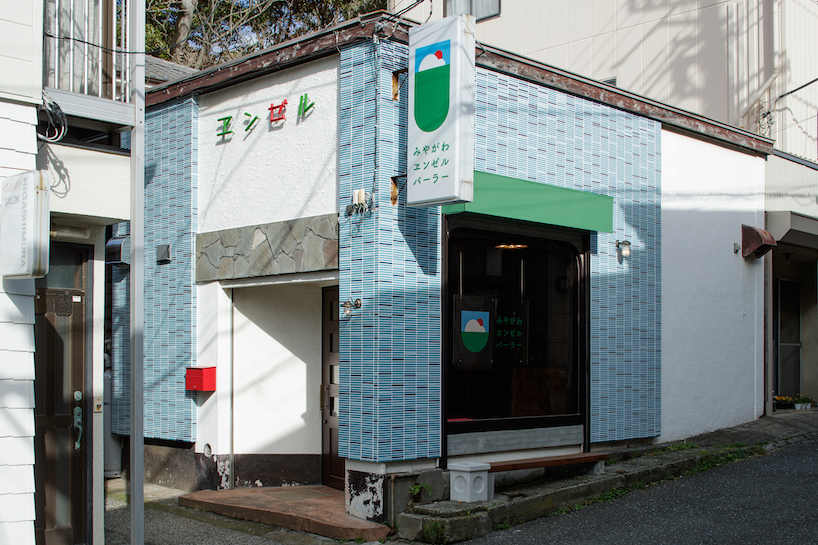
all images by Akira Nakamura
openness at Miyagawa Angel Parlor fosters communal gathering
The former Angel restaurant was celebrated for sourcing fresh catches from the nearby harbor. More than just an eatery, it was a communal hub that grounded locals in shared experiences, fostering the essence of the village, until its closure several years ago. Retaining the name, location, heritage, and ambiance of the former restaurant, the Miyagawa Angel Parlor embraces certain elements from its predecessor’s interior layout. ROOVICE’s structural alterations discreetly introduced a restroom behind the kitchen and a south-side storage room replaced the former back alley access. The previous table dividers were removed for an open, fluid expanse, fostering a continuous spatial flow. A duo of symmetrical benches welcomed patrons just beyond the entrance, respectively inside and outside of the window, with one doubling as a shelf. The pavement surface is covered with a red moquette meant to highlight the wooden textures of the interiors.
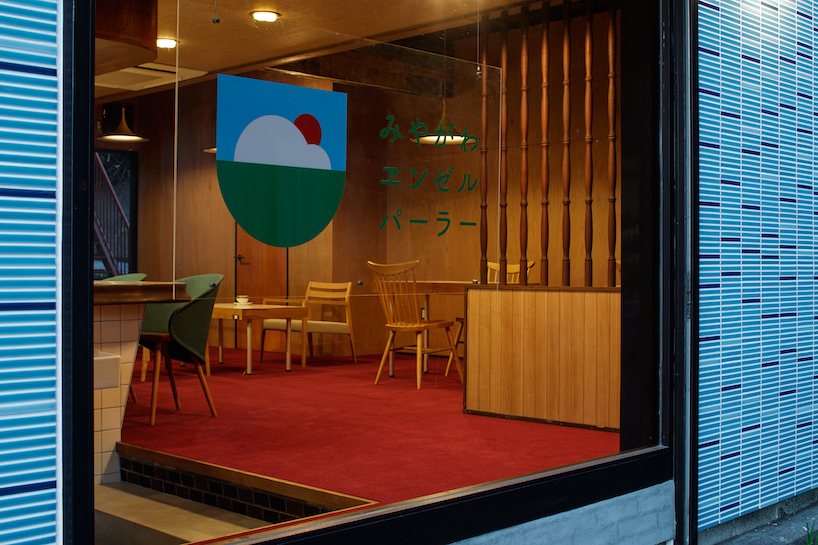
ROOVICE has transformed an old tuna restaurant into a coffee shop
The kitchen counter and the serving tables maintained their original form and dimensions, now topped with a white 10cm tile surface. This design choice provides a sleek finish while remaining affordable, while mirroring the aesthetics of the Miyagawa Bagel Shop sister project, located a few miles away sharing similar historic and social aims. A significant role for establishing the relationship of the two works is played by the wide street-facing opening, a visual gateway connecting the interior with the public realm. This enhances connectivity, and like its bagel shop counterpart, exudes an internal glow that illuminates the structure like a lantern.
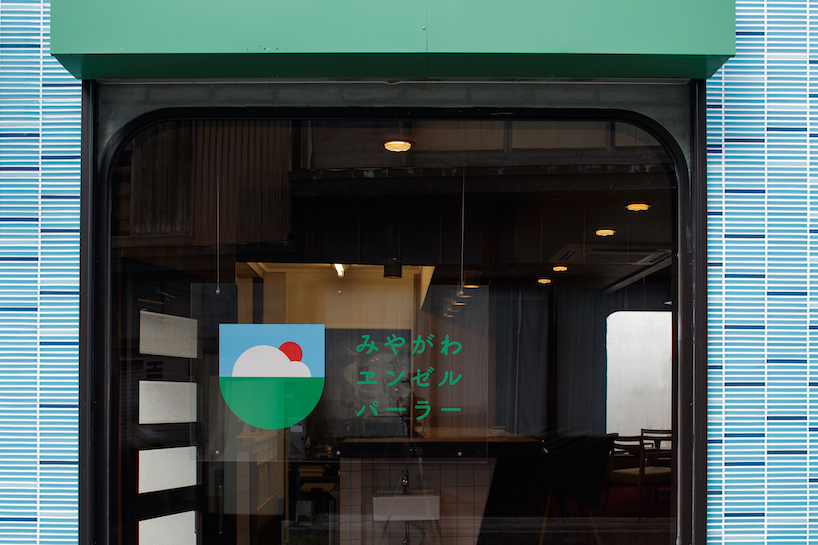
the Miyagawa Angel Parlor embraces the name, heritage, and ambiance of its predecessor
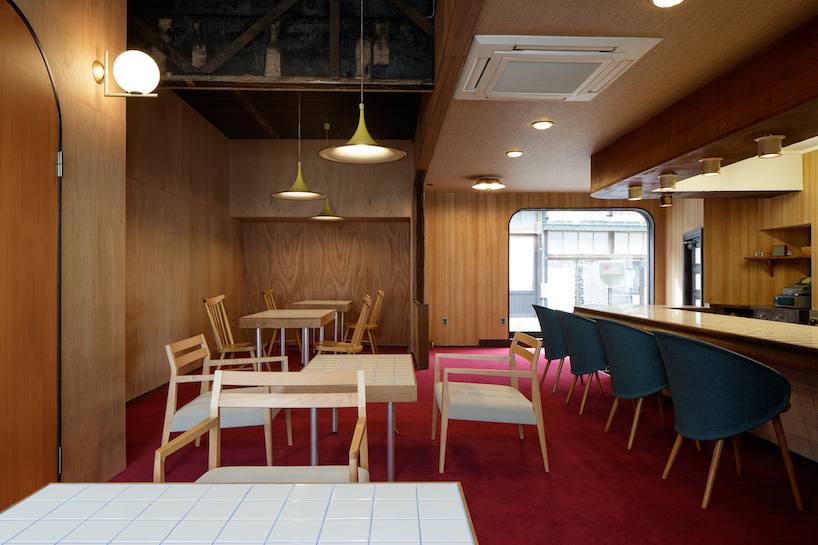
a social space to foster communal gathering




